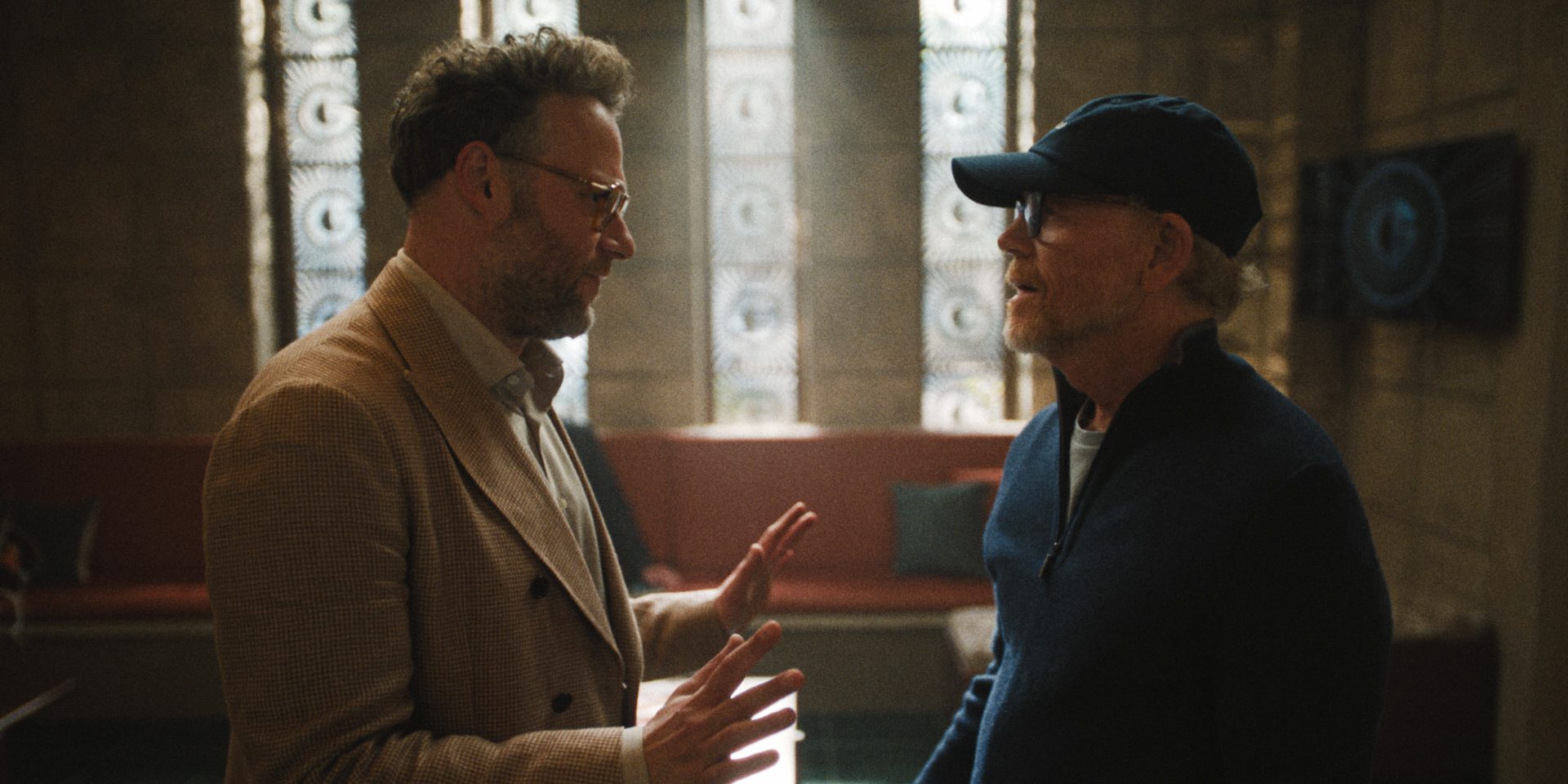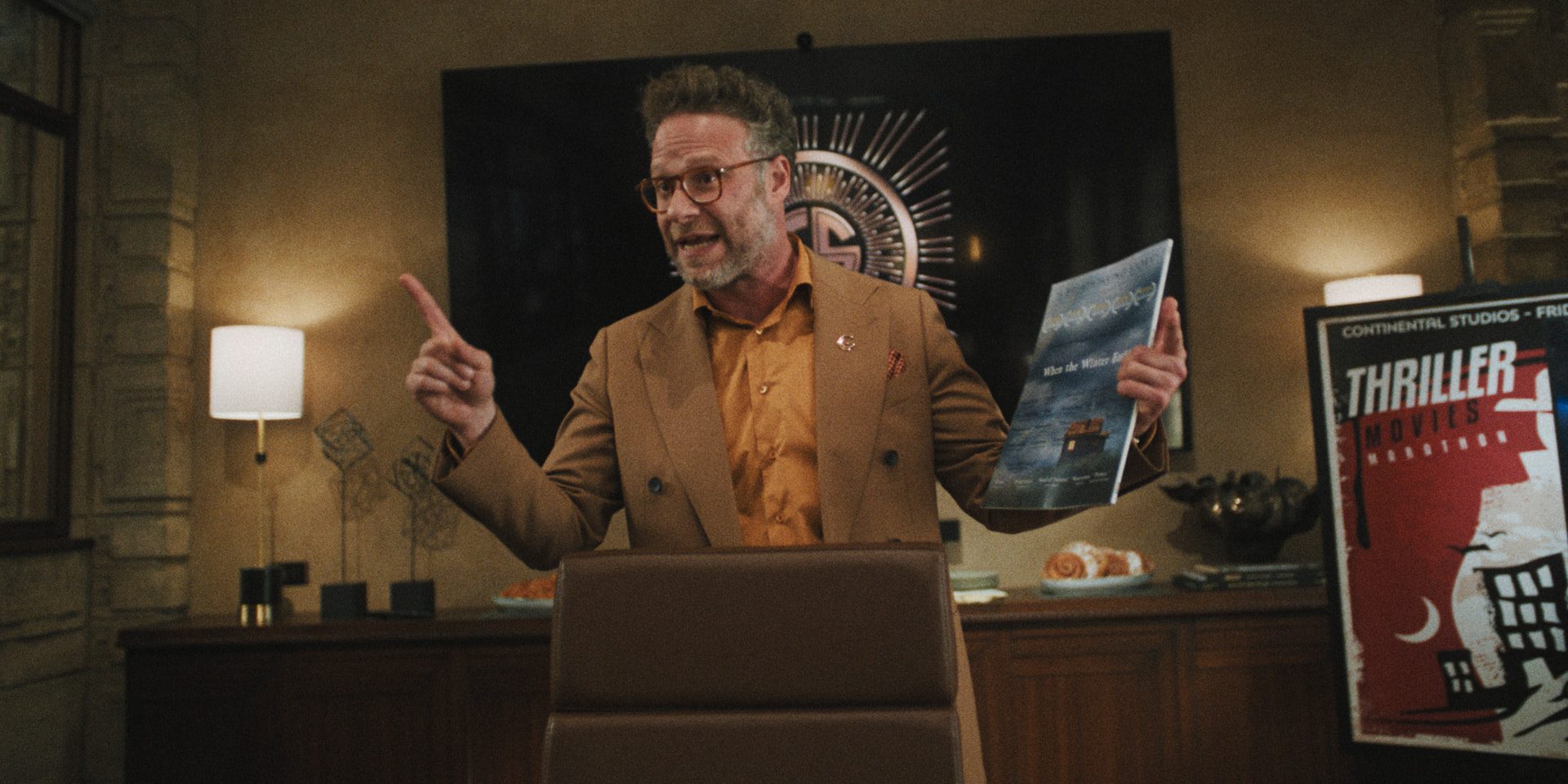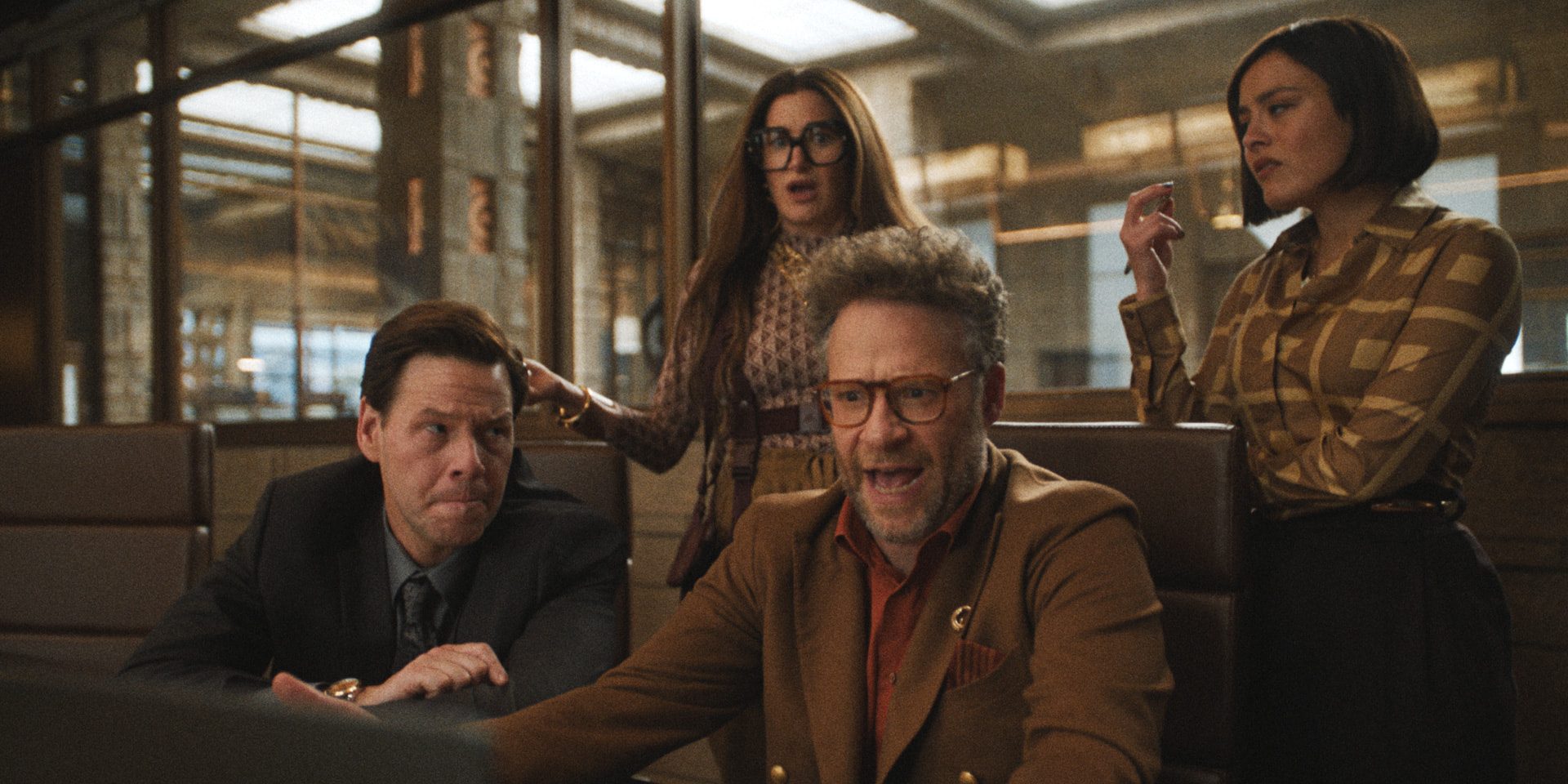Created by Seth Rogen, Evan Goldberg, Peter Huyck, Alex Gregory, and Frida Perez, ‘The Studio’ centers on the ups and downs of the rapidly modernizing film industry as seen through the eyes of Matt Remick, the newly appointed head of Continental Studios. As he tries to revivify the company under new management, Matt has to learn the complexities of his job while balancing his love for movies with the commercial aspects of the task, leading to some amusing situations. The Apple TV+ comedy series dives into the inner world of celebrities, workplace chaos, industry changes, ruthless business practices, and personal ambition, probing each aspect through the angle of film politics. Instead of focusing on the glitz and glamor, it uncovers Hollywood’s clumsy side, one close to reality.
The Studio Delves Into Industry Frustrations Inspired By Real-Life Experiences
While ‘The Studio’ is largely fictional, the show walks a tightrope between reality and make-believe that can be hard to unentangle. The script is penned by Seth Rogen, Evan Goldberg, Frida Perez, Peter Huyck, and Alex Gregory. Rogen and creative partner Goldberg took inspiration from their experiences in Hollywood, channeling their inner frustrations and observations of the movie industry to fuel the scriptwriting process. To that end, one of the main ideas that spurred the series’ development was an encounter Rogen and Goldberg had while coming up in the industry. During a meeting with a studio executive, the duo recalled the man saying, “I got into this job because I love movies, and now my job is to ruin them.” Rogen’s character, Matt Remick, the studio head in charge of Continental Studios, says the line at the beginning of the show.

The idea of first crafting the narrative came to Rogen while acting in Steven Spielberg’s ‘The Fabelmans.’ The actor/writer was deeply intrigued by the director’s ability to construct a personal story that provided valuable insights into the movie business, albeit during a different time and era. He was further drawn to the concept after a rewatch run of ‘The Larry Sanders Show’ during the COVID-19 pandemic. Subsequently, he wondered how he might create a show that intersected matters of his personal life with something that appealed to the average audience. The answer was ‘The Studio.’ Rogen and Goldberg also stated that Steve Carell-starrer ‘The Office’ was another reference point. However, unlike the latter’s dive into the paper industry, the Apple TV+ show captures the eccentricities, chaos, and “tragedy” of filmmaking seen from a corporate angle.
The two writers went an extra step to ensure they did not assume things without doing the necessary research. They sat down with prominent studio heads to discuss the day-to-day challenges of running a company where there are clashes between actors, writers, producers, and directors. The list of people consulted extended to “every person, pretty much, who runs every studio in Hollywood,” including real-life marketing heads. Rogen also claimed that the inspiration for the series is vaguely rooted in his and Goldberg’s time working at Sony Pictures Studios. Thus, a combination of their past encounters and the first-hand accounts from real-life studio executives helped add more dimensions to the realism behind the satirical drama, even though it remains fictional in conception.
Matt Remick: The Blundering But Well-Meaning Fictional Studio Head
The main anchor of ‘The Studio’ is the character of Matt Remick, the abruptly appointed chief of Continental Studios. He is a fictional figure brought to life through Seth Rogen, Evan Goldberg, Frida Perez, Peter Huyck, and Alex Gregory’s writing. As Rogen and Goldberg drew from personal experiences when crafting the show, Remick is likely a blend between fiction and fact. Thus, the character can be viewed as a representation of these past encounters the duo had with people they directly worked with over the years, especially the studio executives. Additionally, the movie industry in the Apple TV+ show also resembles a modern world with modern values. As such, Remick also holds up to those standards as he tries to balance every facet of his job with varying degrees of success.

In an Indiewire interview, Rogen connected Remick’s plight with studio executives in the real world, saying, “The fact that they have a job where they’re constantly put in a position where they have to disappoint their idols and ruin things that maybe could be great — it’s very comedic, honestly.” Like these real-life studio heads, Remick is constantly juggling the dichotomy between “good films” and “commercial projects,” often with his hands tied behind his back. It parallels the situation of company hierarchies and how people feel trapped in a structure, even if they “genuinely like movies and are real movie people.” It leads to a variety of uncomfortable situations and confrontations, which are shown in awkward detail through Remick’s interactions with high-caliber talent.
While he is desperate to prove his mettle and get along with the directors, actors, and other creatives working under him, the protagonist constantly ends up letting them down or ending up in complete opposition to them. It paints him in a tragic light while also providing a plethora of comedic moments. The role is meant to capture the good and bad sides of corporate filmmaking, with more emphasis on the latter. However, while it may delve into a cynical and jaded worldview of Hollywood, the show also maintains a feeling of hope and purity, which is seen through Remick’s passion for movies and his desire to always do the best even if things don’t work out the way they should. He remains the heartbeat of the series despite his fictional roots.
Read More: Is Lifetime’s My Husband’s Baby Based on a True Story?


